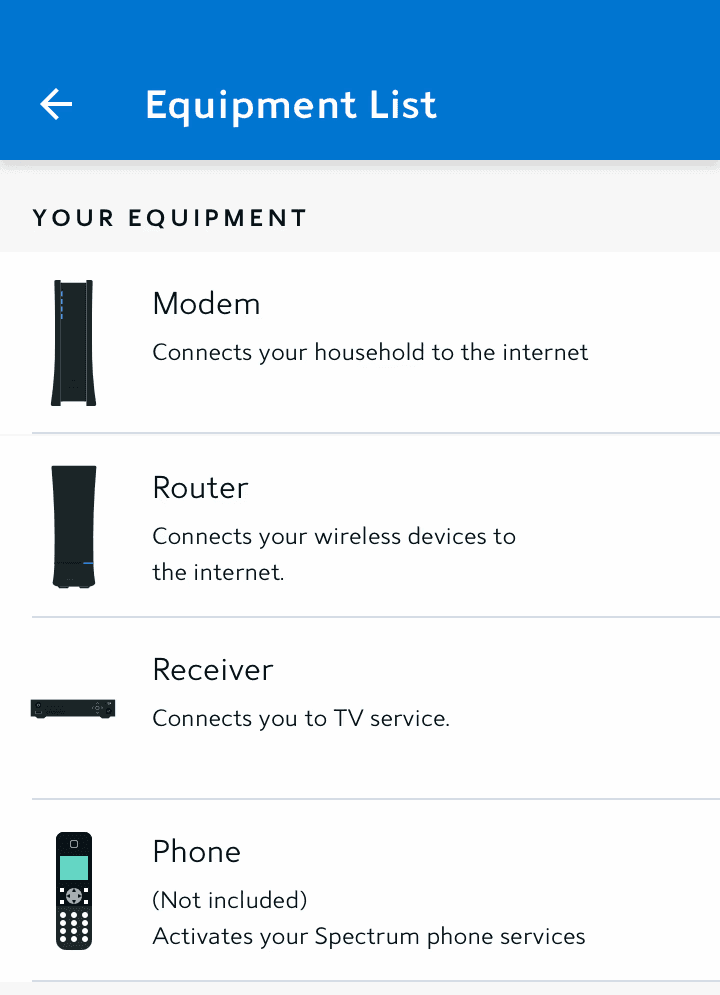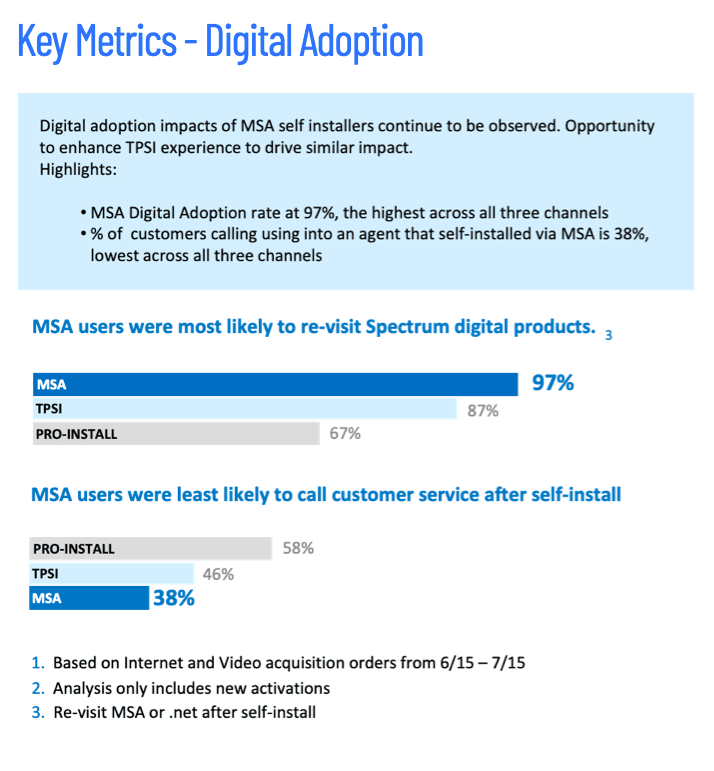Overview
While Spectrum offered a self-installation web portal to it's residential customers, it found little adoption from users and lacked key functionality to ensure customers where setting up their equipment correctly.
In an effort to provide Spectrum Customers with better self-service platforms, Charter Communications hired me to create a mobile self-service installation experience on the My Spectrum mobile app.

Customer Interviews
Discussions with users revealed they preferred being walked through the installation steps versus invisible processes which can end in confusing errors.
Users of the web portal described the process as difficult to accomplish since it required matching the printed instructions with the device activation steps.
Customers asked why they couldn’t use the My Spectrum App that they already downloaded to pay their bills to do self-install
Preferred Self-Install options vs. having to schedule in-home techs especially once the pandemic started.
Discovery
Product discovery required extended research into network configuration, reliability and fidelity. Merging the "virtual" status with physical hardware limitations and failures were key to ensuring customer task completion. We setup a test lab to capture various error states and important decision trees.
Collaboration
Working with hardware engineering, front-end developers and back-end developers we identified points of decision and instruction to guide the users.
Testing
Through lots of end to end testing we identified all the potential network, hardware, and connection failure points and set out to design the user personas, use cases, and journeys.
Personalization
Started with working out logic to identify when to show a “Set Up Equipment” card. This ensured the process was only presented to users who had new equipment to install.
Efficiency
Also worked on logic to identify what equipment had been allocated to the account but not yet activated to ensure we didn’t present flows that weren’t necessary.
Clarification
Designed a “smart” list of the equipment being installed with a brief explanation of what the equipment does.
Design & Protyping
Integration
Working within the design elements of an existing application was critical. While the new self-install feature provided opportunities for useful imagery it had to work inside a defined product and design library.
Interaction Design
Realizing that the steps to connecting modems and routers can be complicated to non-tech users I identified key opportunities for animations and interaction design that would help users understand the physical steps we were asking them to do.
Art Direction
I directed the creation of a dozen "tutorial" animations to help guide users on physical steps before activation signals were processed. This minimized failure and supported one of our key KPIs of reducing the failure rate and avoiding a technician having to troubleshoot on-site.
Results
A scalable platform that allowed users to install internet, router, TV receivers, and VOIP services.
Impact
After rolling out the experience, customer digital adoption rate rose to 98% and successful self-install activations went up 45%. Additionally, customers who activated their equipment via the my spectrum app were over 20% less likely to call customer service.
with a brief explanation of what the equipment does.






